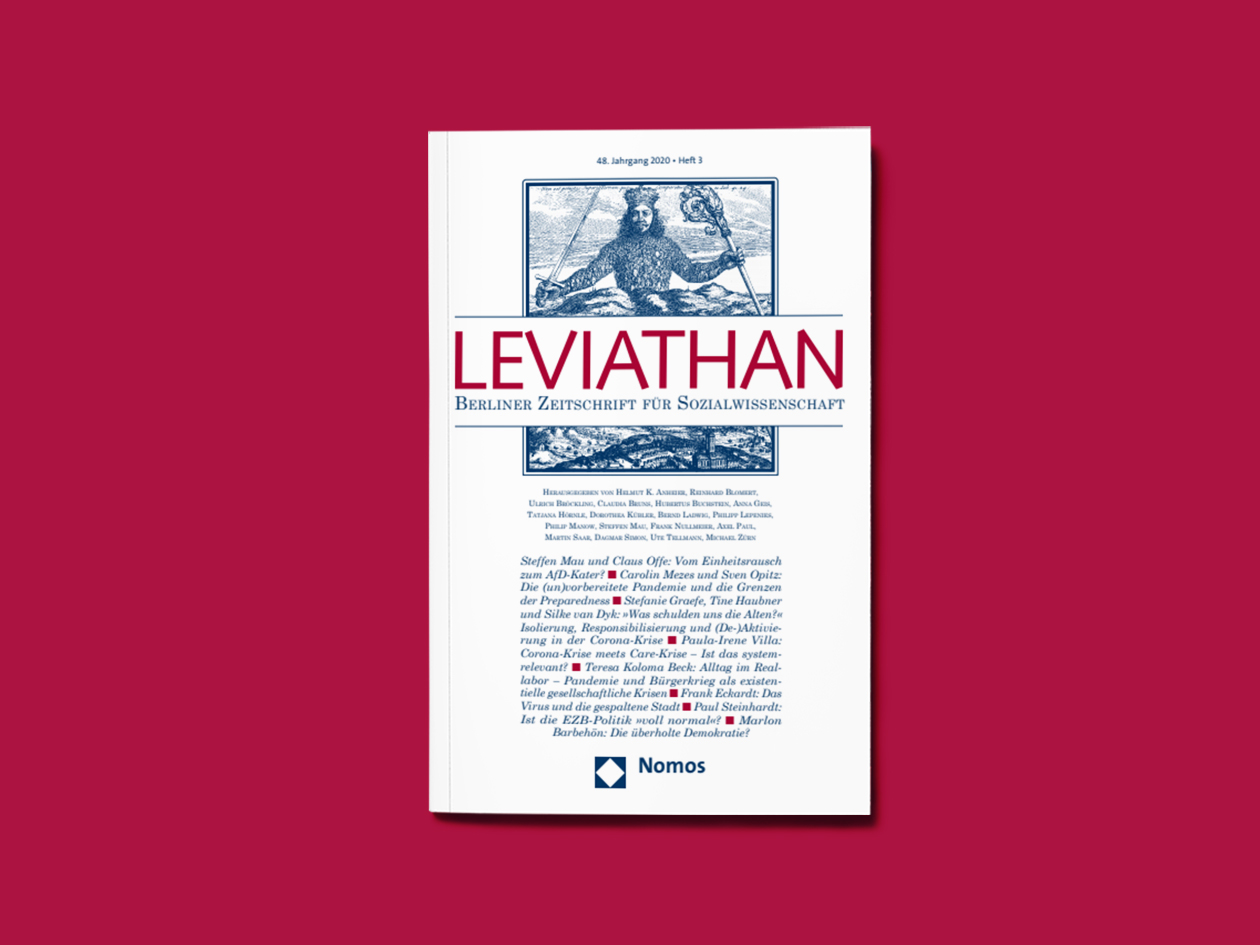‘Leviathan’ focuses on Max Weber: from Philip Manow criticizing Weber’s theory of political legitimacy political rule to Ingrid Gilcher-Holtey’s views on his ‘intellectual marriage’. Also a Weberian theme: Brazil, and its contemporary right-wing shift.

Top-down democracy?
Philip Manow argues that Weber’s notion of legitimate political rule overlooks something quite obvious by today’s standards: namely, that it hinges on democratic elections. Weber’s draft of a plebiscitary democracy is not based on the principles of representation, delegation and mandate but on the willingness to obey a charismatic leader, according to Manow; indeed, Weber’s top-down model of leadership would have significant consequences when he became an advisor to the Weimar Constitution.
From political party crises to representative democracies in peril, Manow ruminates on the lessons learned when examining Weberian thought: ‘looking back at the political upheaval in 1918–1919, … a heightened sense of the immense “complexity of legal and supra-legal contexts,” should be taken into account when considering questions of constitutional democracy today.’
Meeting of minds
Switching gears from the public to the private, Ingrid Gilcher-Holtey considers the ‘intellectualization’ of Marianne Schnitger and Max Weber’s marriage. In her analysis, Gilcher-Holtey defines the nature of the ‘intellectual couple’ and their ‘intellectual marriage’. While Marianne pursued her doctorate on Fichte and Marx, Weber was an early supporter of women’s studies at Heidelberg University; their union, in Gilcher-Holtey’s view, impacted the development of their respective ideas on female equality.
She also explores the couple’s reactions to emancipation vis-à-vis the burgeoning sexual revolution of Heidelberg’s 1907–1908 milieu and the twentieth-century German Revolution. Gilcher-Holtey’s conclusion underscores Marianne’s importance to her husband’s intellectual legacy: not only did she methodically collect and assemble his writings ready for publication but she also wrote Weber’s first biography.
Brazilian scenario
Sérgio Costa takes a multipronged approach to Weber, combining analysis of social structures and political power to interpret the recent political developments in Brazil. Costa applies the term ‘intersectional conflict’ to the post-PT (Workers’ Party) administration’s attempts to reverse recent gains made by marginalized members of Brazilian society, including the poor, migrants, blacks, women and LGBTQIA+ groups. He cites the work of Kreckel, who was himself influenced by Marx and Weber, to underscore inequalities in Brazilian society based on material wealth, relative position within hierarchical organizations, socially relevant knowledge and access to privileged associations.
This article is part of the 5/2021 Eurozine review. Click here to subscribe to our weekly newsletter to get updates on reviews and our latest publishing.
Published 24 March 2021
Original in English
First published by Eurozine
© Eurozine
PDF/PRINTNewsletter
Subscribe to know what’s worth thinking about.
Related Articles

Romania’s anti-vax movement has mutated into a pro-Russian protest bloc. Representing a politically disenchanted online public, the far-right Alliance for the Union of Romanians is increasingly influencing the mainstream agenda.

Although it makes for a great dramatic effect, the theories of the sudden death of democracy disregard the gradual erosion and capture of institutions, and the role of the populace – argues political scientist John Keane.









